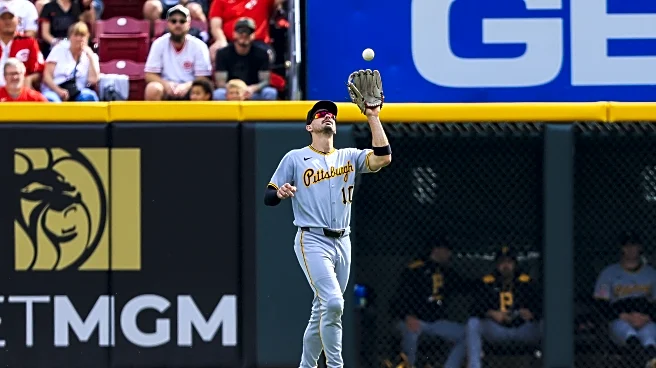What's Happening?
The Trump administration presented its case to the Supreme Court, arguing that the emergency tariffs imposed by President Trump are not intended to raise government revenue. Solicitor General D. John Sauer stated that these tariffs are regulatory and
would be most effective if they were never paid, aiming to stimulate domestic manufacturing and address unfair trade practices. Despite President Trump's claims of significant revenue from these tariffs, the administration emphasized their incidental nature in revenue generation. The tariffs, imposed under the International Emergency Economic Powers Act, have collected nearly $90 billion from U.S. importers, with the administration highlighting their potential to reduce the national deficit by $4 trillion.
Why It's Important?
The Supreme Court's decision on the legality of these tariffs could have significant implications for U.S. trade policy and economic strategy. If the court rules against the administration, it may require refunds of collected tariffs, impacting government revenue and potentially altering trade relations with affected countries. The administration's stance reflects broader tensions in U.S. trade policy, balancing domestic economic interests with international trade dynamics. The outcome could influence future presidential authority in imposing tariffs and shape the economic landscape for U.S. manufacturers and importers.
What's Next?
The Supreme Court's ruling will determine whether the Trump administration can continue using emergency tariffs as a tool for economic and foreign policy. A decision against the administration could lead to significant policy shifts and require adjustments in trade strategy. Stakeholders, including U.S. manufacturers, importers, and international trade partners, are closely monitoring the case, anticipating potential impacts on trade practices and economic conditions. The administration may need to explore alternative measures to achieve its trade and economic objectives if the court limits its tariff authority.
Beyond the Headlines
The case highlights the complex interplay between executive power and legislative oversight in U.S. trade policy. It raises questions about the scope of presidential authority under emergency powers and the balance between regulatory and revenue-raising measures. The administration's argument underscores the strategic use of tariffs beyond traditional economic purposes, reflecting broader geopolitical considerations. The decision could set a precedent for future administrations, influencing how emergency powers are utilized in trade and economic policy.
















